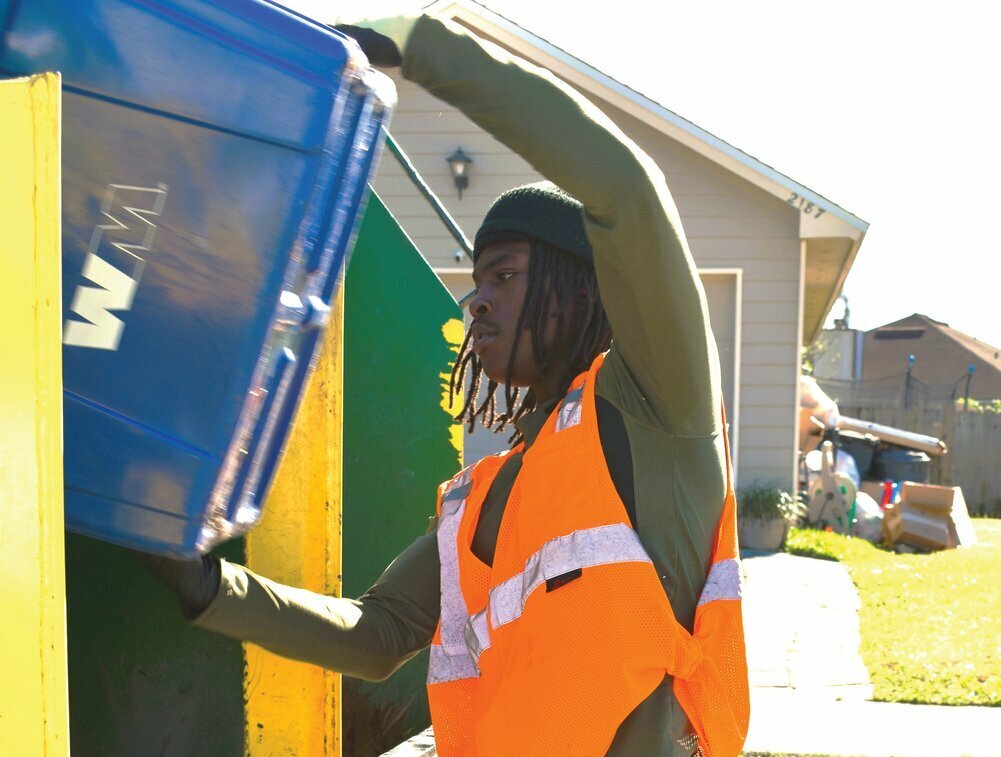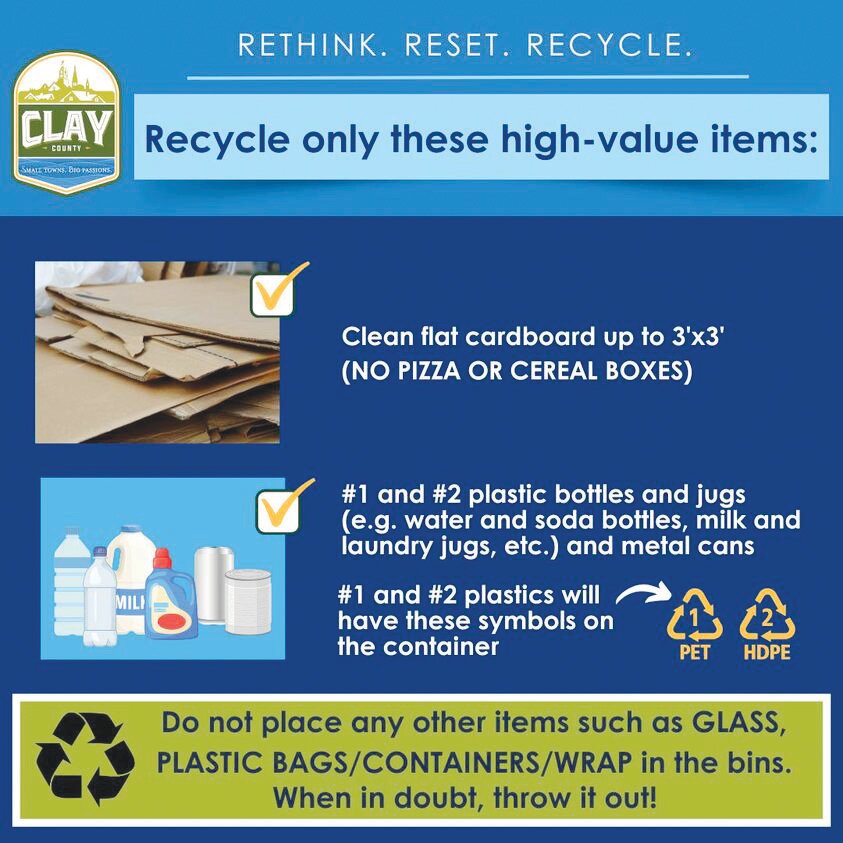Clay County redefines which recyclables will be accepted
CLAY COUNTY – Faced with passing the increasing costs of recycling materials to residents or restricting the program, the Board of County Commissioners worked up a compromise.
This item is available in full to subscribers.
Attention subscribers
To continue reading, you will need to either log in to your subscriber account, below, or purchase a new subscription.
Please log in to continueDon't have an ID?Print subscribersIf you're a print subscriber, but do not yet have an online account, click here to create one. Non-subscribersClick here to see your options for subscribing. Single day passYou also have the option of purchasing 24 hours of access, for $1.00. Click here to purchase a single day pass. |
Clay County redefines which recyclables will be accepted
CLAY COUNTY – Faced with passing the increasing costs of recycling materials to residents or restricting the program, the Board of County Commissioners worked up a compromise.
Starting immediately, the county’s Environmental Services will continue to collect some recyclables with their weekly curbside pickup, and at its convenience centers, there are new guidelines for what is acceptable.
According to the Director of Environment Services Milton Towns, materials like glass, some plastics, plastic bags, Styrofoam, loose paper and food containers are now prohibited.
Corrugated cardboard, water, soft drinks, milk, laundry bottles and metal cans are acceptable. The only plastic allowed has 1 (PET) and 2 (HDPE) stamp logos.
The reason is simple – money. The county currently gets $6 a ton for processed recyclables but must pay $85 a ton to process it. Taxpayers must make up the difference. The county will earn as much as $15 a ton by concentrating on high-value recyclables like plastic bottles and clean cardboard. That’s a savings of $232,489 a year in expenses.
The two closest processing centers are in Jacksonville and Daytona Beach.
“We have been watching the markets,” Towns said. “Over the years, we continue to do that. We have watched the value of our material. We’re trying to economically keep our recycling costs in line to make them feasible for us to continue.”
Corrugated cardboard must be clean and cut into 3-foot by 3-foot sections. Items like newspapers, notebook paper, flat, non-corrugated boxes like ones for for kitty litter, greeting card and shoe boxes, and pizza and cereal boxes aren’t allowed.
“Eliminating glass is the biggest change,” Towns said. “Our processors have been asking us to eliminate glass for several years. Glass is such a contaminant to all of the good recycled glass. Once it’s mixed, it really has no value. So, even the processors have to pay to take the glass from the recycling processor because there’s just no value in that glass. It’s so much cheaper to put heat to sand and create new glass.”
Recycling is still important to protect the environment. It reduces the amount of natural resources used to make new materials and the amount of waste in landfills.
According to the EPA, 75% of all waste is recyclable, and the average American produces about 4.51 pounds of trash daily – 3.4 pounds a person.
But some recyclables aren’t cost-effective. Polk County and the City of Pensacola have stopped accepting all recyclables because more than 50% were contaminated and rejected by the processing plants and taken to landfills.
“We’re trying to get ahead of the curve and adapt to changing markets and cost so that we’re not in a position with having to stop our recycling program on a more permanent basis,” Towns said. “It was painful enough to suspend our program for the year we did through the labor shortages (during the COVID-19 pandemic).”
Clay’s recycling program is funded by the Solid Waste Fund, which requires the program to be self-funded. An increase in the Solid Waste Assessment would reflect any cost increases or income reductions.
If residents don’t comply, the processor will charge a higher rate and taxpayers must pay higher assessments. For now, collectors won’t take a bin if it contains non-compliant items, and they will leave a tag with a list of allowable items.
“We’re telling everyone, when in doubt, throw it out,” Towns said.











